FM Araghchi warns West of debate in Iran on changing nuclear doctrine
Foreign Minister Abbas Araghchi has warned about an ongoing debate in Iran over whether to change the nuclear doctrine in the face of the West's continued sanctions on the Islamic Republic.
Last week, the EU and the UK announced fresh sanctions against Iran after a censure motion brought by Britain, France, Germany and the US was passed at the International Atomic Energy Agency's Board of Governors.
In response, Iran began injecting uranium gas into several thousand advanced centrifuges, making good on its promise if the West did not choose "the path of engagement and instead pursue confrontation and issue a resolution".
Speaking in Lisbon before a meeting between Iranian and European negotiators in Geneva on Friday, Araghchi said IAEA Director General Rafael Grossi had promised to prevent the censure motion after Iran proposed limiting its uranium enrichment to 60 percent purity and allowing four nuclear inspectors to visit its nuclear sites.
Grossi “failed because the Europeans had decided on the course of confrontation,” he told reporters.
Iran subsequently “decided to introduce thousands of new, highly advanced machines into the system. And now they have started to feed them with gas. So this is the result of their pressure”, he added.
Araghchi reiterated that Iran has remained within the confines of the nuclear non-proliferation treaty, however, and still seeks cooperation.
“We have no intention to go further than 60 percent for the time being, and this is our determination right now. I would like to re-emphasize that we have chosen the line of cooperation in order to come to a dignified resolution of this problem,” he stressed.
However, Araghchi said, Iran’s engagement with the West on its nuclear program was not guaranteed.
“There is a debate right now in Iran that it was perhaps a wrong policy. Why? Because it proved we did whatever they wanted and when it was their turn to lift sanctions, in practice, they didn’t happen," he said. "So maybe something is wrong with our policy."
Araghchi stressed that Iran has already acquired the capability and knowledge to develop nuclear weapons, but they are not part of its security strategy.
"So I can tell you, quite frankly, that there is this debate going on in Iran, and mostly among the elites – even among the ordinary people – whether we should change this policy or not, whether we should change our nuclear doctrine, as some say, or not, because it has proved insufficient in practice,” he said.
Araghchi noted that if European countries were to reimpose sanctions on Iran through the UN Security Council, it would convince everyone in Iran that Tehran’s current doctrine had been mistaken.
He then wondered what the purpose was of Iran spending 10 to 12 years on negotiations, implementation, and fulfilling its obligations if it was only to be ultimately placed back under Chapter Seven of the UN Charter.
“If that happens, I think everybody will be convinced that we have gone in the wrong direction, so we have to change direction. So I think if the snapback happens we would have a crisis,” Araghchi added.
For now, only Leader of the Islamic Revolution Ayatollah Seyyed Ali Khamenei could revoke the fatwa prohibiting the possession of nuclear weapons, Araghchi said, stressing that “nuclear weapons have no place in our security calculations.”
Iran had already warned that any resolution against its peaceful nuclear program would be met with a quick response.
In 2015, Iran proved the peaceful nature of its nuclear program to the world by signing the JCPOA with six world powers.
However, Washington’s unilateral withdrawal in 2018 and its subsequent re-imposition of sanctions against Tehran left the future of the deal in limbo.
In 2019, Iran started to roll back the limits it had accepted under the JCPOA after the other parties failed to live up to their commitments.
IRGC intel. chief: Enemies devised 7-stage plot for recent riots
Israeli minister calls to 'encourage' Palestinian exodus
VIDEO | Press TV's news headlines
VIDEO | Near breakdown: Generators in Gaza’s main hospitals
Israel razes apartments in West Bank, displaces over 40 Palestinians
Russia slams US, Israel over 'destructive policies,' warns strike on Iran could ignite region
UK drops aggravated burglary charges against 18 Palestine Action activists
VIDEO | Palestinian athlete and daughter hope to return to the track despite amputation


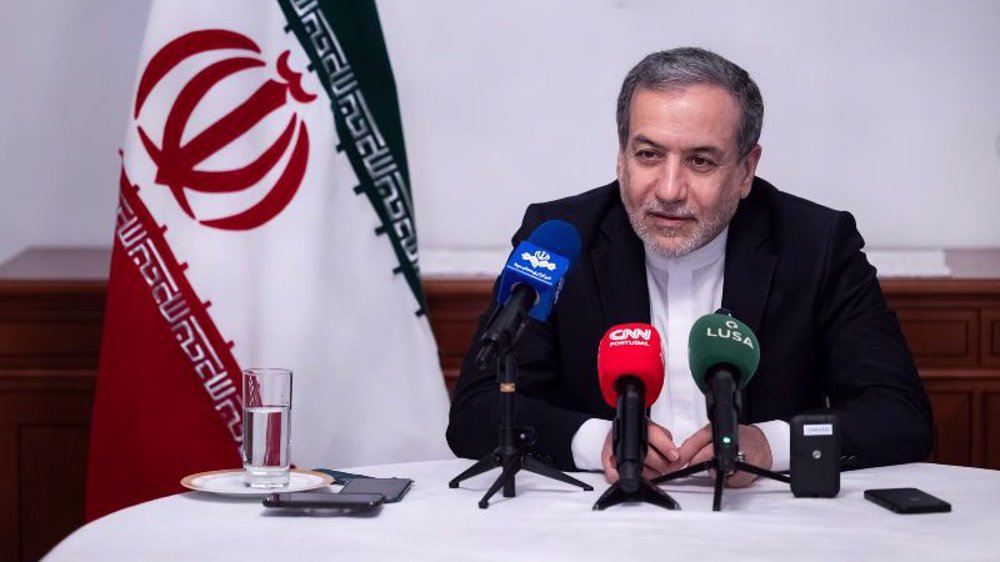
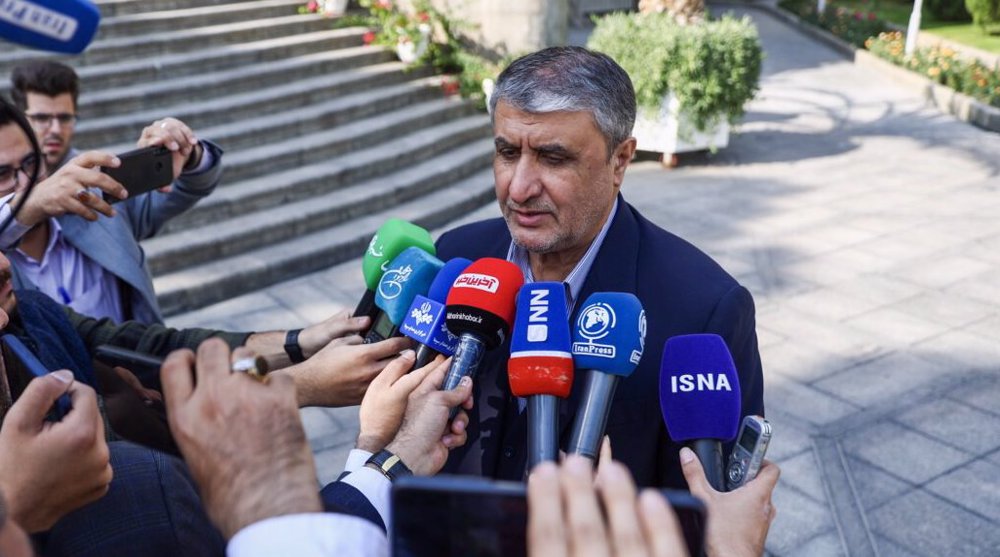
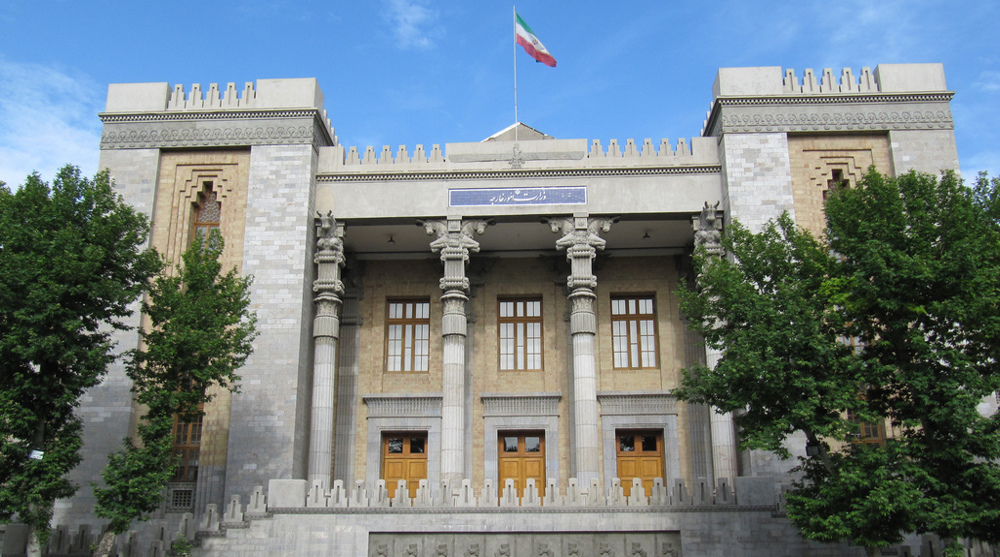
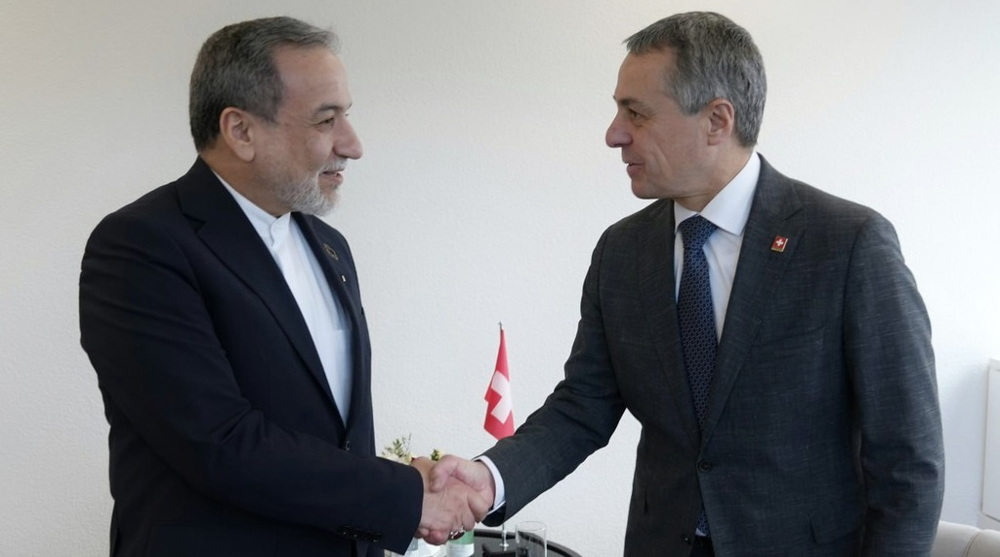
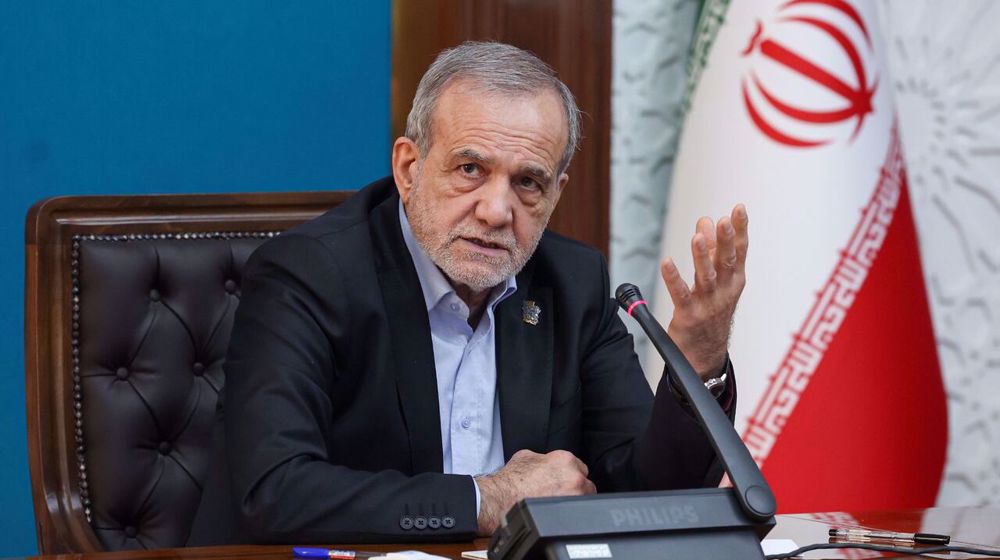




 This makes it easy to access the Press TV website
This makes it easy to access the Press TV website